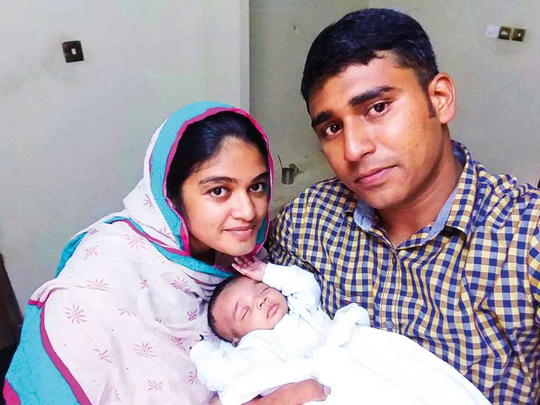
Dubai
It’s been six months since Haskar Ali Mohammad last saw his one-year-old baby girl, and for this Eid Al Fitr break, he plans to make the most of his visit to his hometown in Kerala, India.
For Ali Mohammad, Eid does not feel the same if celebrated away from family.
“Eid is a special time to renew family ties, catch up with childhood friends and gather for Eid prayers along with other members in our neighbourhood,” said Mohammad, a 32-year-old procurement specialist living in Dubai.
This holiday, he reunites with his mother, wife, daughter, four sisters, brother and their children and other family members.
“I try to spend almost every Eid Al Fitr break with my family because it’s so much more enjoyable to be with people you haven’t seen for a long time and share the special moments with them.“I’m mostly looking forward to seeing my daughter, Haiza Zainab, who turned one this month. This Eid is extra special as it is her first festival celebration with us.”
- Haskar Ali Mohammad, Indian expat
The first day of Eid, Mohammad said, begins with the morning Eid prayer, followed by a brunch, prepared with traditional food such as a large platter of mutton or chicken biryani.
The evening is a social occasion with family members and relatives.
Greetings are exchanged with one another as neighbours come visiting, he added.
“Many of our relatives live in different countries and usually take this opportunity to travel back home to spend time together,” he said.
“Everyone prepares beforehand to get new clothes stitched for the occasion and we also volunteer to help the poor in the neighbourhood buy new clothing. It brings them a lot of happiness.”
Each Eid spent back home refreshes his memories of the many joyous celebrations through his childhood as traditions and rituals are carried over from one generation to the next.
“The women always go to get their hands and feet decorated with henna before Eid begins. This has always been a tradition.
Traditional ways
“Young ladies dress up in the traditional churidar (tight-fitting trousers) and kameez (a long top), while the elder women dress up in colourful saris,” he said.
The men wear a white dhoti, a long white cotton cloth that is tied around the waist extending to cover most of the legs, and a white shirt, he explained. However, the youth nowadays choose to wear jeans and shirts.
“I prefer to wear a dhoti during Eid because I don’t always get the chance to wear it,” said Mohammad.
Giving eidiya to children in addition to purchasing gifts for the family is an integral part of Eid.
The first Eid night, he said, is celebrated with fireworks across the neighbourhood.
“Many houses are also lit up for the occasion. The children in the neighbourhood truly enjoy it.”








